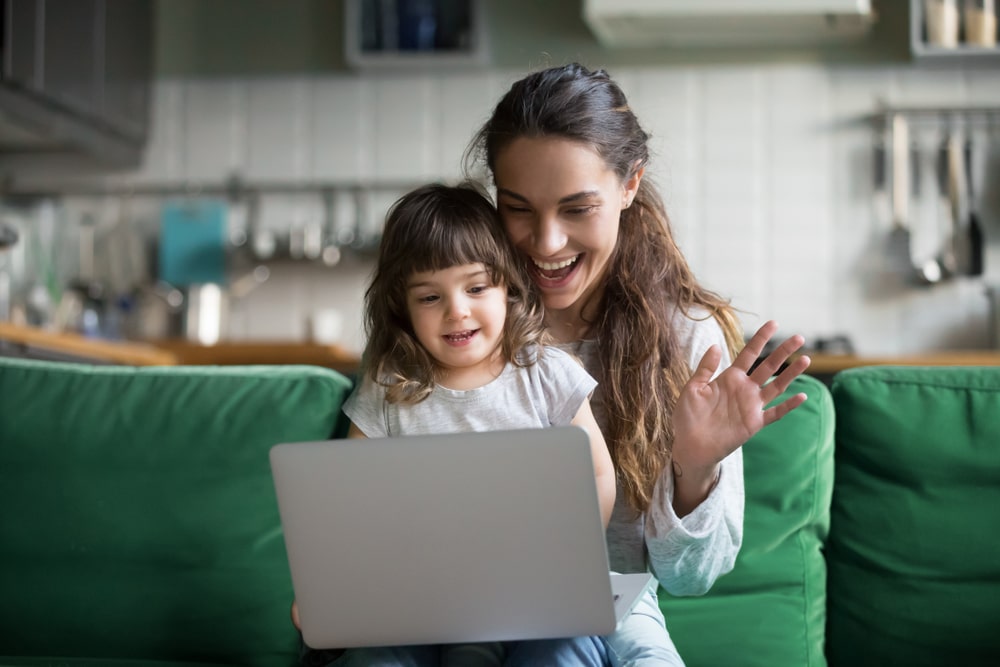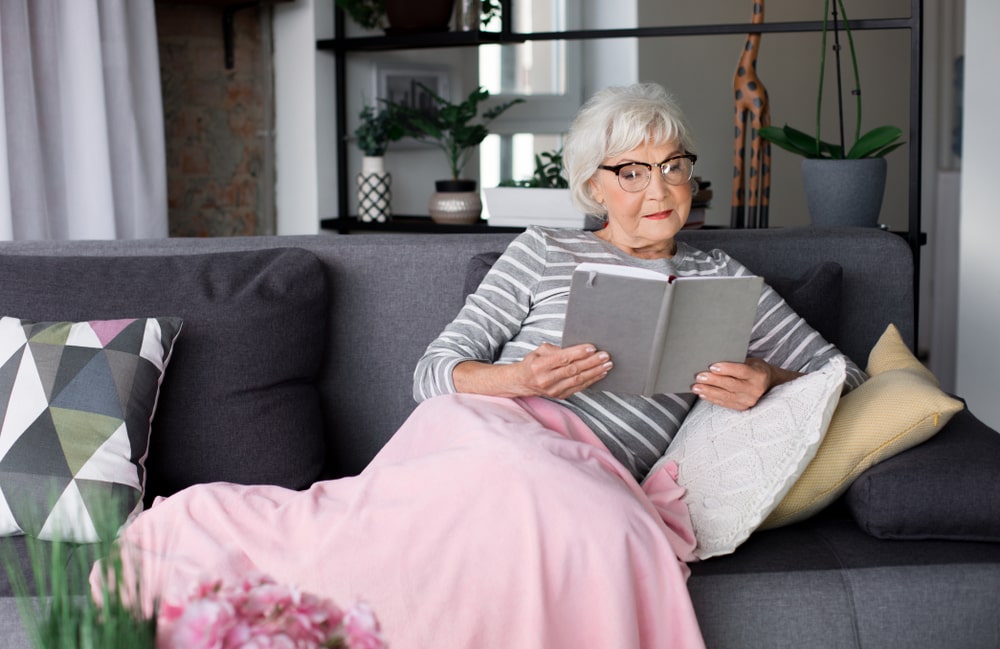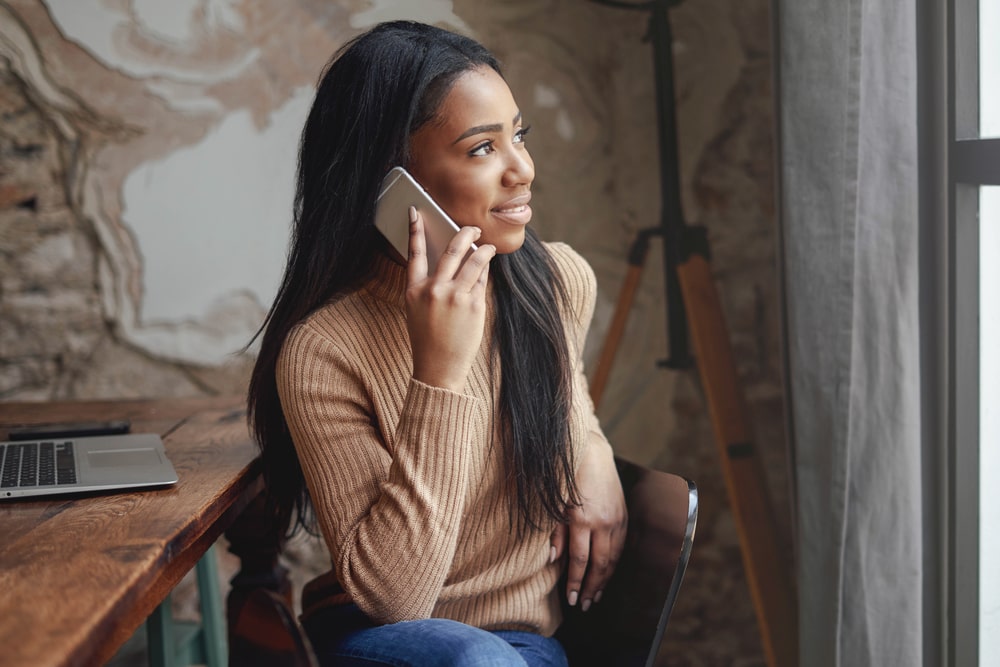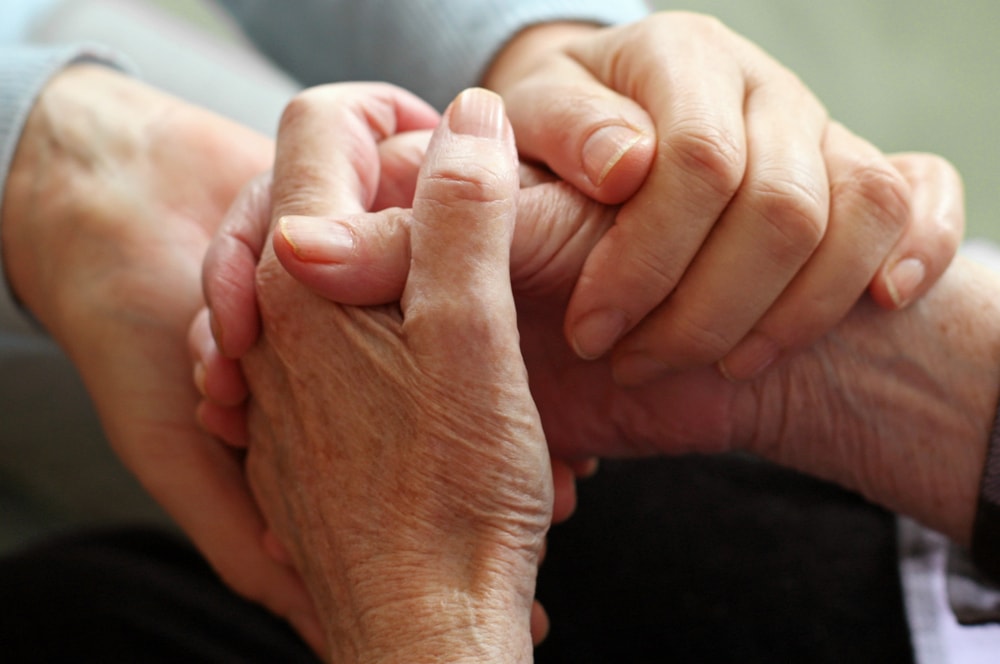The coronavirus is not only causing a viral pandemic—it is giving rise to a pandemic of grief. As I write this, in mid-March 2020, we as a global community are suffering so many losses that I hardly know where to begin.
Death and grief go hand-in-hand, of course. Thousands of people have already died of COVID-19 worldwide. Many more are dying right now. These are terrible losses for the loved ones of these precious individuals, and they will need our support and empathy in the months to come.
Yet what strikes me at this moment is that this aggressive new virus is threatening every single person on Earth with myriad losses of every kind. Name something you care about or that gives your life meaning. In all likelihood, this attachment is now negatively affected or threatened in some way by the coronavirus.

Social distancing is forcing us to be apart from friends and family for weeks and possibly months. Personal events have been postponed or called off, so we are unable to gather for life’s most meaningful celebrations and rituals, from baptisms and birthdays to weddings, anniversary parties, and funerals. Public activities and experiences that brought us together have also been cancelled. Workplaces are shuttering or moving to work-from home. Restaurants, museums, and theaters are closing. Sporting events have been shut down. Town squares stand empty.
While thanks to technology we can still stay in constant contact with one another remotely—something that wasn’t possible during past prolonged international crises, such as the 1918 flu pandemic—we are learning the limitations of digital love and care.
What is grief?
As human beings, whenever our attachments are threatened, harmed, or severed, we naturally grieve. Grief is everything we think and feel inside of us when this happens. We experience shock and disbelief. We worry, which is a form of fear. We become sad and possibly lonely. We get angry. We feel guilty or regretful. The sum total of all these and any other thoughts and feelings we are experiencing as a result of the coronavirus pandemic is our grief.

Our pandemic grief will change from day to day and week to week. This virus is fast. As it sweeps across continents and we collectively take action to “flatten the curve,” new rules and limitations are popping up every day. Restrictions are mounting and growing increasingly severe. As the noose tightens, our grief will change. And as with the virus itself, it will likely get worse before it gets better.
How to help yourself and others: emotionally, socially, and spiritually
There are a couple of important things to understand about your pandemic grief.
First, it is normal and natural. It is simply a part of your love and attachment.
And second, grief responds to awareness, attention, and expression.
You will feel better if you mourn. Mourning is being aware of your grief, giving it the attention it needs and deserves, and expressing it outside of yourself.
We have all heard a lot about how to take care of ourselves physically with this virus, but I have seen little about emotional, social, and spiritual health. During this time of great grief, mourning is the key to these pillars of self-care.
When we are feeling the emotional pain of our coronavirus grief, we can tune into it and allow it to teach us what we are really worried, sad, angry, etc. about. And then we can express it. We can talk to others about it, in our household, on the phone, or online. We can write about it in a journal. We can listen to music or watch movies that help us access, understand, and share our feelings. Mourning our grief in these ways helps soften it and gives us the emergency emotional release and sustenance we need to survive.

Socially, we can’t congregate in person right now. Did you know that the word “congregate” comes from the Latin roots com, meaning together, and gregare, meaning to gather in a flock? But we can continue to make efforts to reach out to the people we care about. Video calls are probably the best substitute for face-to-face conversations. Voice calls come second. After that, emails, texting, and social media work too. And don’t forget the power of the handwritten letter! The point is to stay connected as much as possible AND to be open and honest in those communications about whatever it is you are feeling or struggling with at the moment. Your candor will encourage others to be honest as well, creating the opportunity for mutual support and kindness.
And when it comes to spiritual health, now is an especially resonant time to work on caring for your soul. One redeeming factor of enforced isolation is that it creates the opportunity for spiritual contemplation and practice. In times of loss, we almost always wonder why things happen as they do. We naturally question the meaning of life in general and the meaning of our own life in particular. We turn our attention to our deepest beliefs and values. We talk to God or wonder about God or get angry at God.
If you’ve been struggling with beliefs, values, meaning, and life goals during the pandemic, you’re experiencing the spiritual aspect of grief. And the best way to care for your spirit right now is to be intentional about giving it time and attention. I recommend spending at least 15 minutes each day on spiritual practices. Whatever helps you get in touch with your divine spark—do that. For some people that might be meditation or prayer. For others it can be reading a spiritual text, speaking affirmations, attending a religious or spiritual service online, doing yoga, writing in a journal, or spending time observing nature or walking outdoors.

Simply being aware of your emotional, social, and spiritual health every day and being deliberate about self-care in those areas will help you and others today as well as in the weeks to come. There is no doubt that this is a challenging moment to be alive, but it is also a moment in which our collective resources have never been greater and more capable. So let’s be open, honest, and kind—to ourselves and to each other.
Suggestions for special circumstances
Loneliness
The longer we are isolated in our homes, the lonelier we are likely to become. Humans are social creatures. We are built for touch and body language and conversation. With the rise of technology and its modern-day substitution for personal contact, we were already suffering from a loneliness epidemic. But the coronavirus social-distancing efforts are making it (and will continue to make it) worse. My best suggestion here is to reach out proactively to others in all the ways that you can right now, as often as you can, for their benefit as well as yours. If you or someone you know is at particular risk for loneliness right now, ask for assistance. Find friends, family members, and neighbors who are willing to create a support team. Most people are happy to help but need suggestions about how.
Isolated seniors
On a related note, many seniors are particularly isolated right now. As you know, older people are at much higher risk for serious illness and death from the coronavirus and are having to self-isolate the most strictly. If you are an isolated senior reading this, the loneliness self-care tips I offered above apply to you. If you would like to help an isolated senior, brainstorm with others about the ways in which you can still provide safe comfort and support. For example, deliveries of food, books, and personal notes might help. Touching base by phone once or twice a day could make a world of difference. Be creative and practical in your efforts, and most of all, offer frequent and consistent contact.

Another special circumstance that applies here concerns seniors being cared for in longterm care facilities that have instituted no-visitors policies during the pandemic. Such policies are absolutely necessary right now, but they are also separating loved ones. And I have already heard of a number of cases in which an elderly resident is actively dying but their family is not allowed to be by their side as they die. This is a great heartbreak indeed, and I can offer no equal substitute for physical proximity at this pivotal moment in a family’s life. But I would encourage families to do whatever they can to convey their love. For example, it’s possible to write a letter to the person who is dying and ask a care attendant to read it aloud to them. Making a video recording of yourself, as if you were talking directly to the dying person, is another idea. Asking that special music be played and special memorabilia or flowers be placed in the room is a third idea.
Far-flung families
Many family members are separated from one another at the moment. Some live far apart but wish they could be closer together at this time of need and grief. But travel may not be possible, and for elderly or at-risk family members, physical proximity may be inadvisable anyway. Again, I would suggest being in touch as much as possible, as often as possible, in any way you can. If you are feeling concern or love for someone who is far away, call them and tell them so. Send them a text. Write them an email. Send a heartfelt greeting card with a personal letter. Your grief over a possible threat to their well-being, yours, or both is tugging at you, so give it voice. They will feel loved and supported, and you will feel relieved and loved as well.
Cancelled events
In many ways, special events are the moments in which we most profoundly feel the love we share with our closest others as well as the meaning of life itself. We dream of and plan for significant expected events such as graduations, retirements, and family vacations. And when unexpected significant events arise, such as serious injuries, deaths, and funerals, we drop everything to be there. But we are living in a moment in time in which most such events are being cancelled in an effort to protect the health of the greater community and the most vulnerable among us. Naturally we are bereft over the loss of these rare opportunities to gather with loved ones and immerse ourselves in that which is most meaningful in our lives.

Whenever possible, I would advocate for such events being postponed rather than cancelled. If the graduation or retirement date comes and goes, maybe the celebration can still be held later on. If a public funeral can’t take place shortly after the death, maybe a memorial service can be scheduled some weeks or months from now. Untimely gatherings are not ideal, of course, but they are much better than no gathering at all. Virtual events may also be a good idea. Baby showers and christenings broadcast live online might be an option, for example.
But most of all, what I hope you will do when an upcoming event is cancelled is pay attention to your feelings about the cancellation and then communicate those feelings to the people who form the centerpiece of the event. If a wedding is cancelled, for instance, write heartfelt notes to the bride and groom and any other family members you are close to telling them why you were looking forward to the event, what it means to you, and what your hopes and dreams are for them in the months to come. They will find great comfort and meaning in your words.
Serious illness and death
If it hasn’t already for you, the moment will likely come during this pandemic when someone you care about—maybe not someone in your closest circle but a friend or neighbor—becomes seriously ill and perhaps even dies. I am certainly not trying to borrow trouble, but I also understand that, numerically, you and I may both find ourselves in this unfortunate circumstance at some point in the coming year. Such is the nature of COVID-19. And to complicate matters, it may happen at a time when we are still quarantined to our own homes, and public ceremonies are still forbidden.
Virtually all of us are grieving this possibility right now. If you have read this whole article, you know that I am an advocate for being open and honest about our inner grief. If in the coming days your grief includes this worry, please talk about it with other people, on the phone, online, and on social media. And if such a reality comes to pass for you, I hope you will remember that your grief is normal and necessary, and it needs and deserves expression.

Here in the American interior west, it feels strange to be rolling onto the onramp of a viral pandemic. We know the route we are heading down, but we don’t know exactly how bad it’s going to be or how our local communities—or we personally—will be affected along the way. Because of this uncertainty, our grief is in part anticipatory at this point. While we are already grieving very real closures, cancellations, and limitations, we are also, normally and naturally, anticipating the unknown griefs to come. They are also part of our love.
I hope that we will emerge from this viral and grief pandemic a more conscious, cohesive, and caring world community. May it shape and transform us into better versions of ourselves.
About the Author
Alan D. Wolfelt, Ph.D., is a respected author and educator on the topics of companioning others and healing in grief. He serves as Director of the Center for Loss and Life Transition and is on the faculty of the University of Colorado Medical School’s Department of Family Medicine. Dr. Wolfelt has written many bestselling books on coping with grief, including Grief One Day at a Time and First Aid for Broken Hearts. Visit www.centerforloss.com to learn more about grief and loss and to order Dr. Wolfelt’s books.




